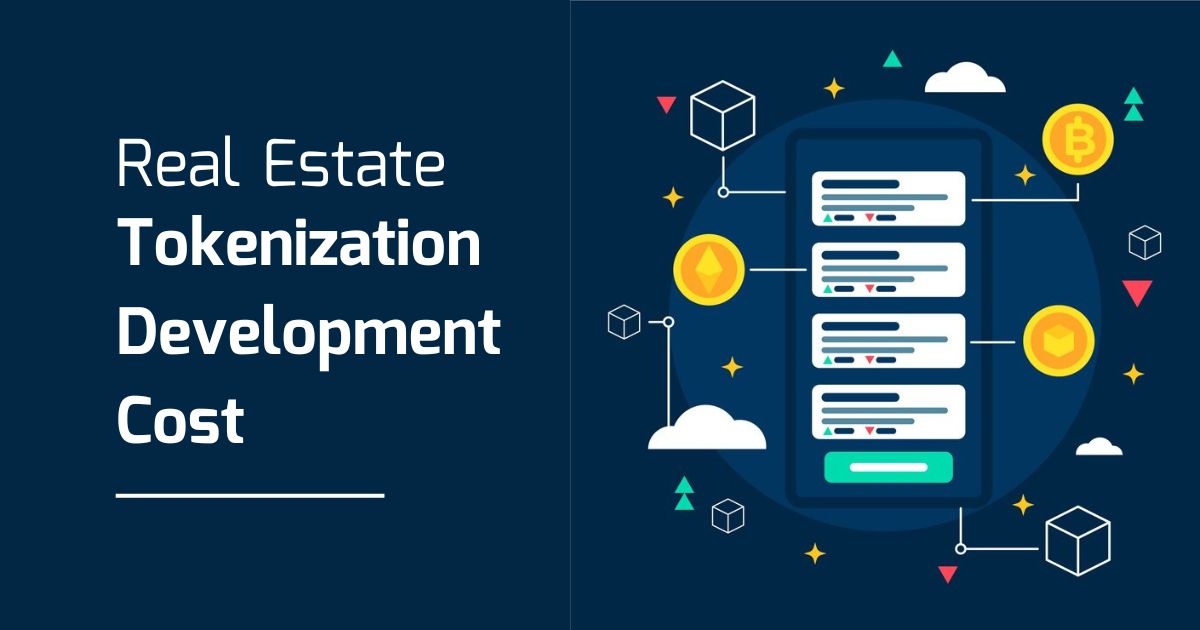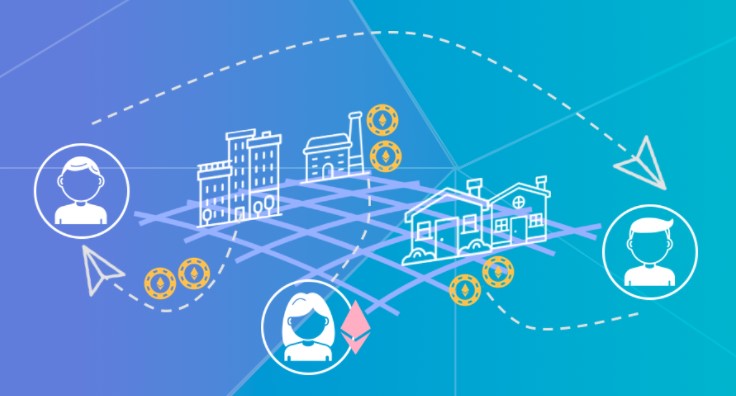Real estate tokenization is another excellent example of the most exciting developments happening in the sphere of property investment in recent years. It is this realization that has the potential of changing how real estate is bought, sold, and even invested in. But before diving into the tokenized asset world, there’s one question on everyone’s mind: What is the real estate tokenization development cost? Here, however, we’ve unpacked the process from beginning to end, and I’ve dissected every component of what it costs to develop real estate tokenization.
Introduction to Real Estate Tokenization
What Is Real Estate Tokenization?
Picture having the ability to buy a cub of a cosy high rise edifice or a beautiful vineyard and not having to worry about tenants and property maintenance. Real estate tokenization brings this into a reality through the process of converting the real estate into tokens that are traded on block chain. In other words, tokenization decentralizes real estate, which is broken down into fractionalized units that can be sold to investors in a single property.
How Does It Work?
Real estate tokenization means issuing tokens on a blockchain in return for real estate. Each token is a digital certificate representing a specific proportion of the property’s ownership. Bought, sold, and traded like stock, these tokens add liquidity and transparency to real estate investments.
Tokenization As The Key Tool In Real Estate: The Current Stage
Advantages of Tokenization of Real Estate
Tokenizing real estate offers numerous benefits:
- Increased Liquidity: While tokenized real estate investments can be compared to REITs, it is crucial to understand that the ownership tokens are divisible, increasing the number of potential buyers.
- Transparency: This means that all transactions are recorded using blockchain technology in a secure state that cannot be altered.
- Global Reach: Tokenization allows investing in assets from across the world and around jurisdictions.
Factors Driving Tokenization in Real Estate
As the real estate industry continues to evolve, tokenization is being driven by:
- Technological Advancements: Blockchain technology is getting stronger, and the tokenization process is getting easier and safer.
- Investor Demand: Increasingly more investors are demanding fractional ownership and also the ability to exit their real estates.
- Regulatory Evolution: Governments are starting to adopt legal responses that fit the novel asset type.
Understanding the Real Estate Tokenization Development Cost
Overview of Development Costs
The real estate tokenization development cost is influenced by various factors such as the technology stack, platform size, security requirements, and regulatory needs. Understanding these variables is key to managing expenses effectively.
Factors Affecting the Development Cost
Some critical factors that will affect the cost to develop real estate tokenization include:
- Blockchain technology: Which platform will be used (Ethereum, Binance Smart Chain, etc.)?
- Smart contract development: The complexity and customization required.
- UI/UX design: The user interface and overall experience.
- Security protocols: Implementing robust security measures to protect both assets and investors.
- Regulatory compliance: Ensuring the platform adheres to legal standards across jurisdictions.
Components of Real Estate Tokenization Development
Smart Contracts
Smart contracts are at the heart of tokenization. These self-executing contracts facilitate the buying, selling, and trading tokenized assets without needing a middleman. Developing these contracts is both crucial and cost-intensive.
Blockchain Platforms
Choosing a suitable blockchain is vital to the tokenization project. Popular options include Ethereum, Hyperledger, and Binance Smart Chain. Each has its pros and cons, with varying costs based on scalability and security needs.
User Interface and Experience (UI/UX)
The front-end design and user experience play a huge role in attracting investors to your platform. A sleek, easy-to-navigate interface might seem trivial, but it is critical to ensuring the platform’s success.
Security and Compliance
Real estate tokenization deals with significant sums of money and sensitive information. Ensuring data protection and cybersecurity comes at a high cost but is non-negotiable.
Breaking Down the Cost to Develop Real Estate Tokenization
Cost of Blockchain Integration
Depending on the platform, blockchain integration can cost anywhere from $30,000 to $100,000 or more, depending on the project’s complexity and desired features.
Cost of Smart Contract Development
Developing smart contracts is often one of the most expensive parts of tokenization. Depending on customization and intricacies, it can range from $10,000 to $50,000 or higher.
Platform Development Costs
Depending on the scope and requirements, developing the user platform, complete with registration, wallet integration, trading interfaces, and other features, can cost between $50,000 and $150,000 or more.
Regulatory and Legal Compliance Costs
Legal expenses can fluctuate wildly depending on your jurisdiction. Navigating the complex landscape of real estate law in multiple regions can lead to costs upwards of $20,000 to $100,000.
Key Factors Influencing Real Estate Tokenization Development Cost
Technology Stack
The choice of your tech stack (blockchain platform, databases, development languages, etc.) will heavily influence the overall development costs.
Platform Size and Complexity
A larger, more complex platform with more features (such as multi-currency support, complex trading algorithms, etc.) will naturally cost more than a simple tokenization platform.
Development Time and Resources
The longer the development process takes, the higher the costs. More developers or specialized talent can speed up the project but will add to the expense.
Geographic Location of the Development Team
Developers in North America or Western Europe may charge significantly more than those in Asia or Eastern Europe without compromising on quality.
How Much Does It Cost To Develop Real Estate Tokenization Globally?
Average Costs Across Different Regions
On average, the cost to develop real estate tokenization can range from $100,000 to $500,000 depending on where you develop the platform and the project’s complexity. North America tends to be on the higher end of the spectrum, while Eastern Europe and parts of Asia may offer more competitive pricing.
Factors Leading to Regional Differences
Labor costs, legal fees, and the availability of blockchain developers all contribute to these regional differences.
Hidden Costs in Real Estate Tokenization Development
Maintenance and Upgrades
Development doesn’t stop once the platform is live. Regular maintenance, security upgrades, and feature expansions can add 10-20% of the original development cost annually.
Security Audits
Given the sensitive nature of tokenized assets, regular security audits are essential. These audits can range from $10,000 to $50,000 depending on the platform’s complexity.
Ongoing Compliance
Legal compliance isn’t a one-time cost. Keeping up with regulatory changes, especially across multiple jurisdictions, can be expensive and time-consuming.
Is Custom Development or a White-Label Solution More Cost-Effective?
Advantages of Custom Development
Custom development allows for greater flexibility and customization but comes at a higher cost. However, it ensures that your platform is uniquely suited to your needs and market demands.
Pros and Cons of White-Label Solutions
White-label solutions are more affordable but may lack the customization or unique features required for specific markets. They can be a good option for startups looking to enter the space quickly.
Real Estate Tokenization Development Timeframes
Time Required for Different Components
Development time varies depending on the complexity of the platform. Generally, creating a fully functional real estate tokenization platform can take anywhere from 6 months to a year.
How Time Impacts the Cost
The longer it takes to develop the platform, the higher the labor and operational costs. Delays can also lead to missed market opportunities, further increasing costs.
Why Security Is a Major Part of the Real Estate Tokenization Development Cost
Importance of Cybersecurity in Tokenization
Cyberattacks are a constant threat in the digital world, and tokenized platforms are no exception. Investing in strong cybersecurity measures is critical to protect both users and assets.
Costs Associated with Implementing Strong Security Protocols
Investing in cybersecurity might involve encryption protocols, regular audits, penetration testing, and more. These can add significant costs but are crucial for protecting your platform from potential vulnerabilities.
Regulatory Compliance: An Essential Part of Real Estate Tokenization Development Cost
Navigating Different Jurisdictions
Regulations surrounding real estate tokenization cost can vary significantly from one country to another. Understanding and complying with these regulations is critical, and can be quite costly depending on where your platform operates.
Ensuring Legal Compliance
Adhering to securities regulations, investor protection laws, and property rights can cost tens of thousands of dollars but is essential for the platform’s long-term success.
Real Estate Tokenization Platforms: Case Studies
Example Platforms and Their Development Costs
Several real estate tokenization platforms, such as Harbor and RealT, have raised millions through tokenized assets. Examining these platforms gives insights into their real estate tokenization cost and development strategies.
Lessons Learned from Successful Implementations
Each case study reveals key lessons about the importance of regulation, investor engagement, and maintaining robust security measures.
Reducing Real Estate Tokenization Development Cost
Strategies to Optimize Costs Without Sacrificing Quality
Some ways to manage real estate tokenization development cost include using open-source blockchain platforms, hiring developers from regions with lower labor costs, and focusing on essential features first.
Tools and Technologies to Help Minimize Expenses
Utilizing pre-built frameworks and intelligent contract templates can help reduce development costs. Automated compliance tools and integrated cybersecurity solutions can also minimize future expenses.
Wrapping Up
Building a real estate tokenization platform is a challenging process, and, of course, it requires a significant amount of funding. Still, its opportunities in the contemporary investment environment cannot be overestimated. Thus, it is seen that despite the varying real estate tokenization development cost, which crucially depends upon the platform, a blockchain selection, and the major regulations all across the globe, it has been identified that this is the one area that has the immense potential to grow in the forthcoming periods. When choosing custom development or a white label, it is crucial to focus on planning and costs to achieve project success.
FAQs
1. What is the average cost to develop real estate tokenization?
On average, the development cost can range from $100,000 to $500,000, depending on the complexity and location of the development team.
2. What are the primary factors affecting the development cost of real estate tokenization?
The technology stack, security protocols, platform size, and regulatory compliance are significant factors.
3. How long does developing a real estate tokenization platform take?
Depending on the platform’s complexity, development typically takes 6 to 12 months.
4. How can I reduce the development cost of my real estate tokenization project?
You can optimize costs by using open-source tools, focusing on essential features, and hiring developers from regions with lower labor costs.
5. Is real estate tokenization worth the investment?
Yes, tokenization offers numerous benefits, such as liquidity, global access, and transparency, making it a worthwhile investment for the future.




